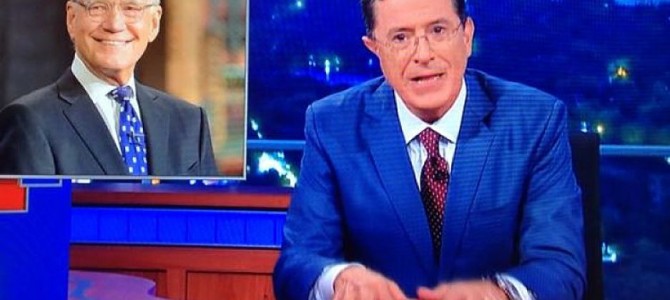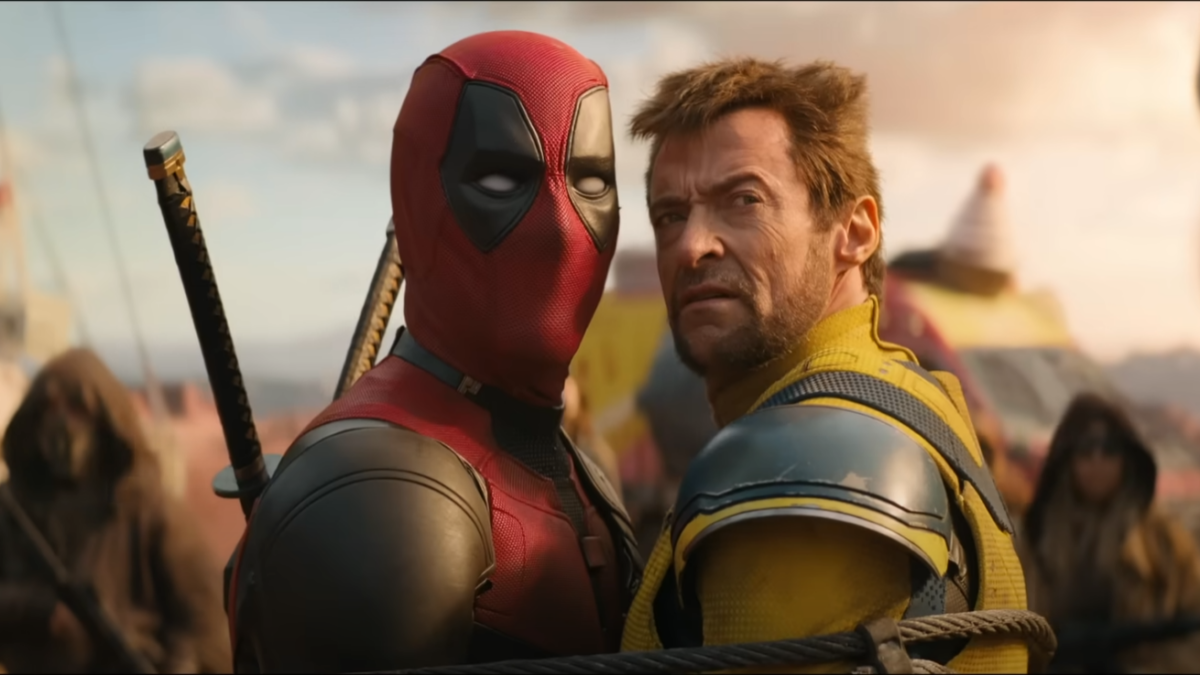Tuesday night, Stephen Colbert took over as host for CBS’ “The Late Show.” Although he had two prominent guests—Jeb Bush and George Clooney—they were both upstaged by Colbert’s antics and subtle social gospel.
After kicking off the show with a pre-recorded video of Colbert singing “The Star Spangled Banner” with Americans all over the country, the cameras panned the studio, which was awash with red, white, and blue.
In an age when political correctness reigns supreme, many comedians have increasingly found it difficult to be funny while walking the line of what is socially acceptable to joke about. Not Colbert, who landed mostly unoffensive jokes with ease from his new studio, under a ceiling that displays a projection of stained glass windows, featuring iconography of Colbert, aptly dubbed the “Church of Stephen.”
Between obligatory Donald Trump jokes and a painfully long and awkward promotional segment for Sabra hummus, Colbert made sure that we all knew he’s going to be all about including everyone and highlighting the good things people are doing for mankind.
Clooney joined Colbert to talk about his charity Not On Our Watch, and Colbert gleefully pointed out that his first guest was not there to promote anything, like an upcoming film, but rather to just talk about his humanitarian work and joke about wedding gifts.
A devout Catholic who also taught Sunday school at his church, Colbert’s decision to emphasize Clooney’s advocacy organization that provides aid and fights for social justice abroad is telling. Devoid of religious context, the verbal pat on the back he gave Clooney for his humanitarian work reflects tenets of a secularized social gospel, which manifested itself as a theme throughout this inaugural episode.
While interviewing Jeb Bush, Colbert threw in some of his own thoughts on political discourse. Perhaps in an attempt to distance himself from his former character as an over-the-top conservative TV pundit during his nine-year stint as host of “The Colbert Report,” he made sure Bush knew he would have to work for Colbert’s vote, by saying there’s a “non-zero percent chance” that he would vote for him.
“I used to play a narcissistic conservative pundit. Now I’m just a narcissist,” he quipped.
When Bush talked about his desire to tone down the hostile political rhetoric from both sides of the aisle, Colbert lauded that suggestion, and pressed Bush to explain further. Colbert then unexpectedly had the focus of the cameras turn to his brother, who was seated in the audience, and made a point that he and his brother love each other despite their political differences. He smoothly transitioned this diversion into a question on how Bush differed from his brother. Bush responded that his brother didn’t use his veto powers enough, allowing Congress to get out of control with its spending habit.
The closing song was a revamp of “Everyday People,” that song from way-back-when about people of different backgrounds coexisting peaceably with one another, cinching the theme together neatly.
Peeking at Colbert’s guest list shows that he’s planning to make good on his promise to include more political diversity to “The Late Show’s” stage. Bernie Sanders, Joe Biden, and Supreme Court Justice Stephen Breyer are all set to appear on the show in the next two weeks, time will tell if Colbert sticks to his social gospel-esque rhetoric.









